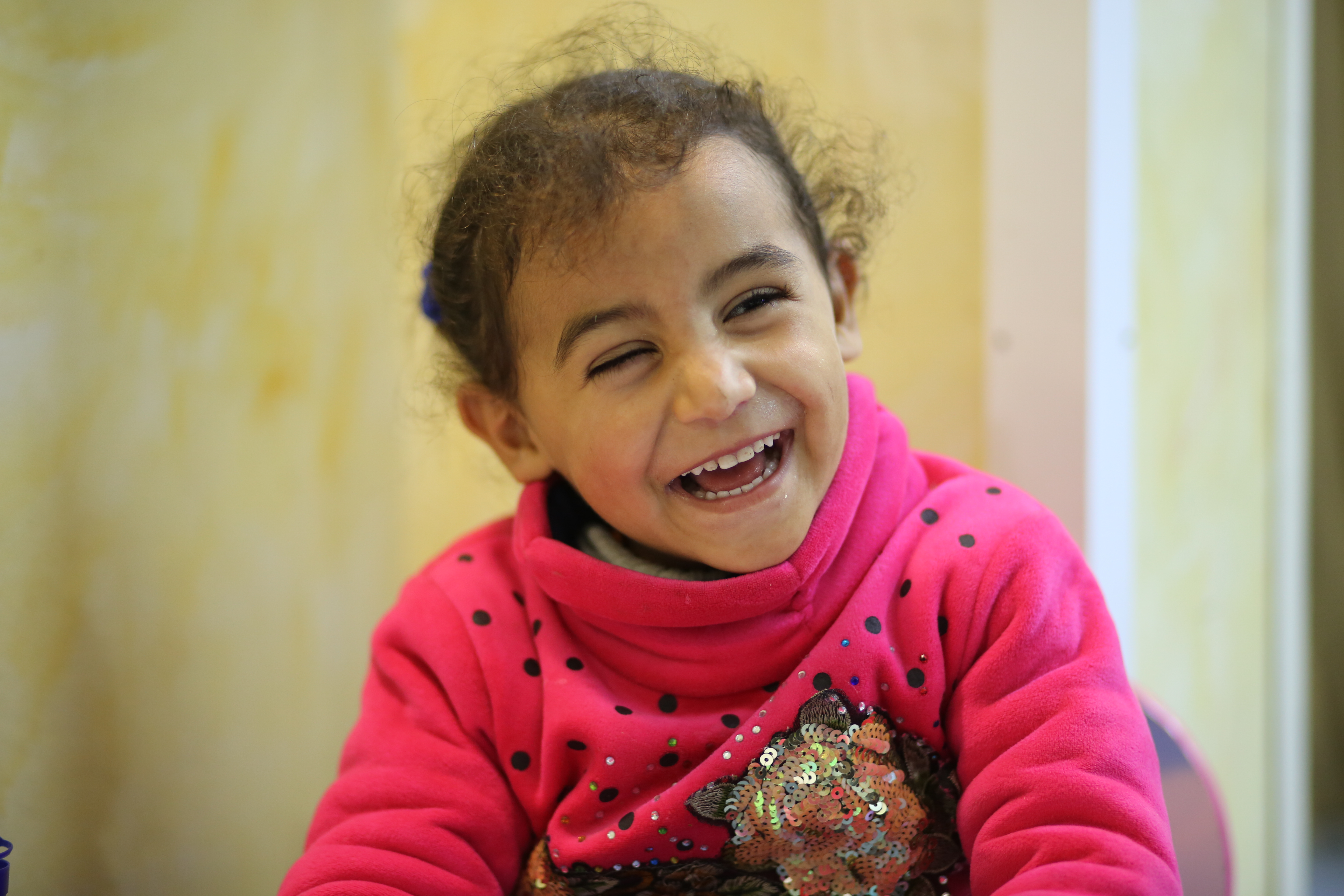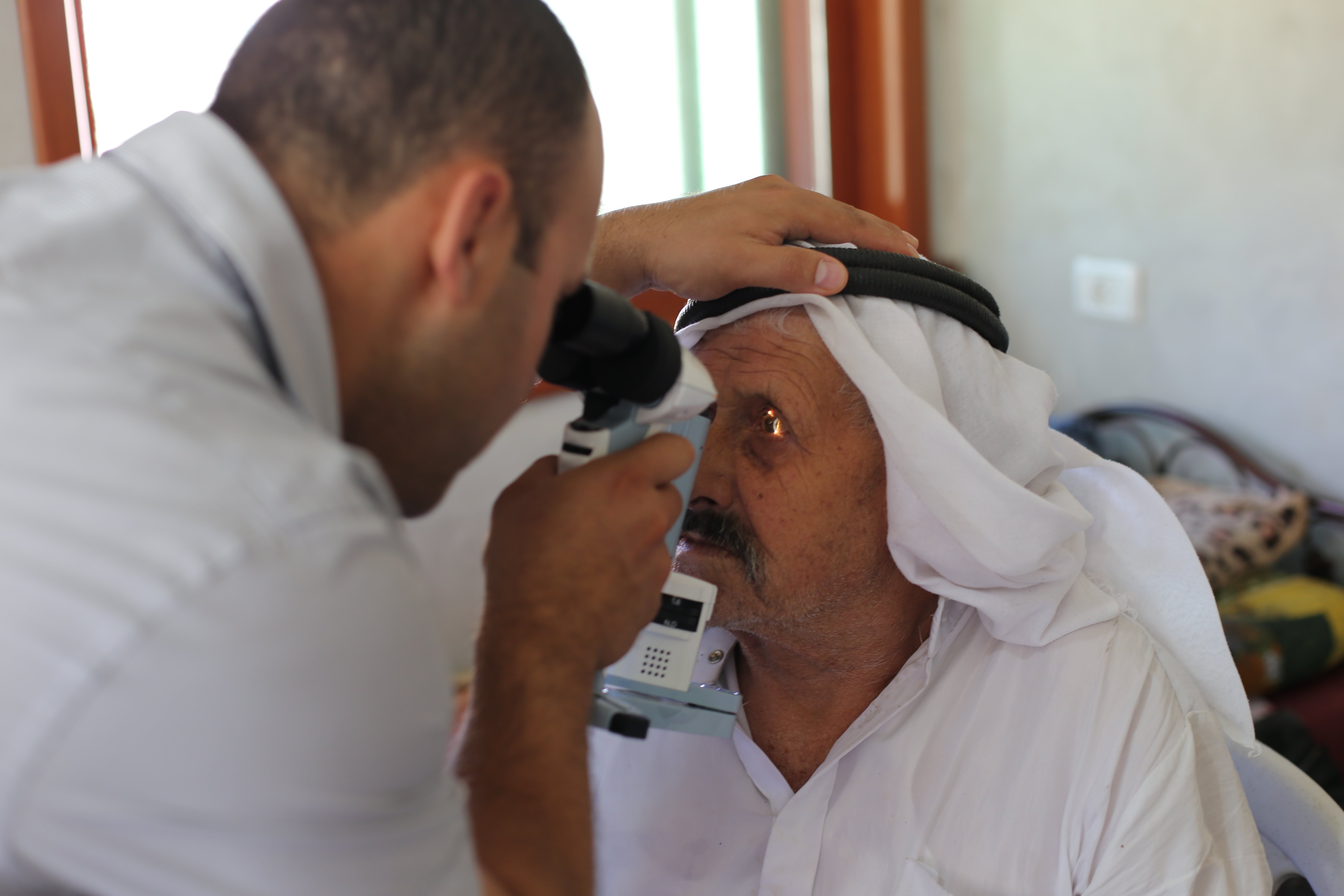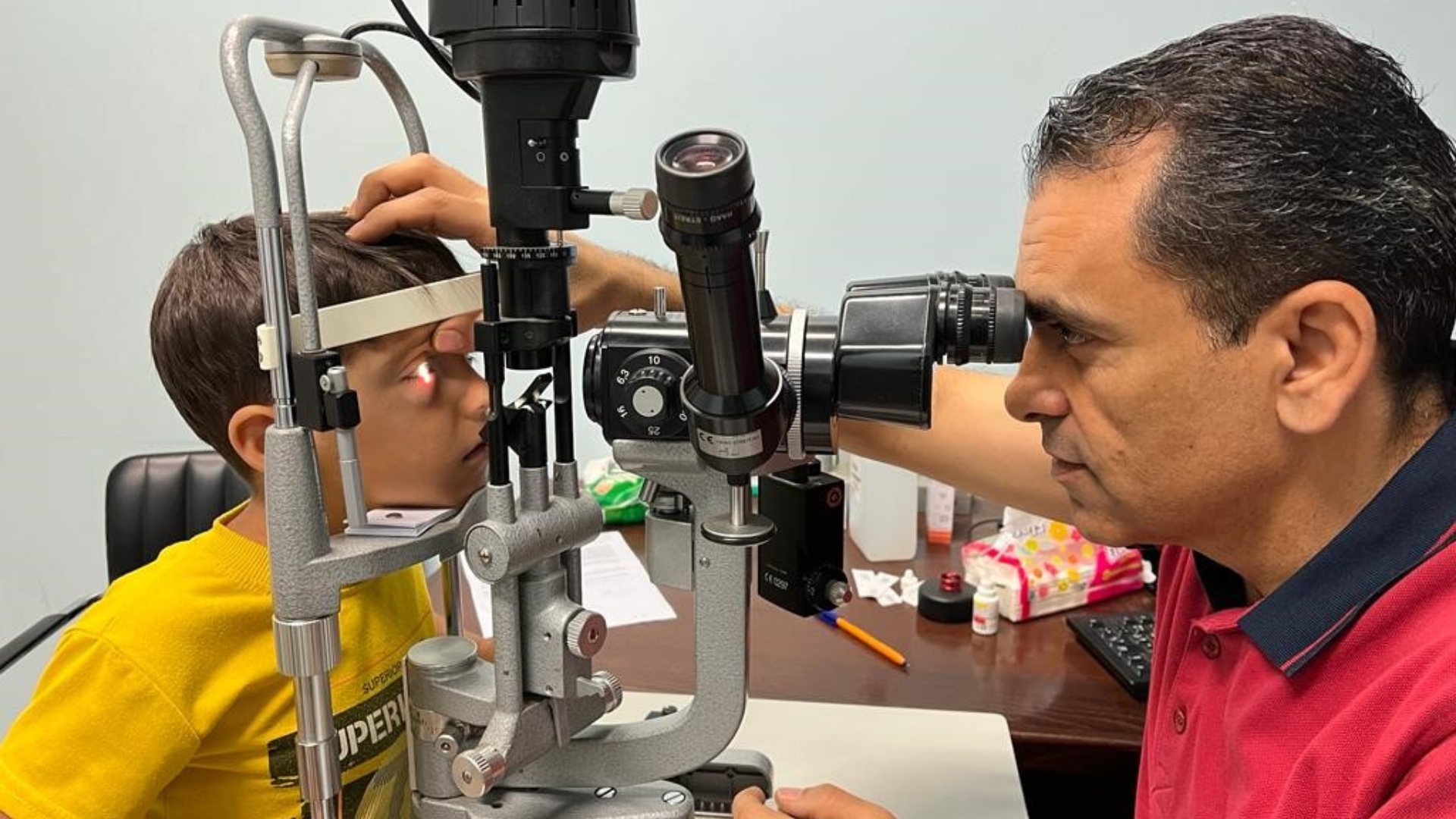Our work in the Occupied Palestinian Territories
In the Occupied Palestinian Territories, 82.4% of blindness and vision impairment in people aged 50 years and older is avoidable.
Although vision loss due to eye diseases is largely avoidable, prevention and treatment of avoidable blindness and vision impairment in the Occupied Palestinian Territories remains a significant challenge.
Cataract and diabetic retinopathy are the leading causes of avoidable blindness and low vision in the Occupied Palestinian Territories among people aged 50 years and over. Refractive error is the leading cause of early vision impairment in this same population.
There are several factors that have contributed to the Occupied Palestinian Territories becoming one of the world’s most challenging settings for the delivery of health care services. These factors include long-lasting and ongoing political unrest, restrictions of movement that make it difficult and some times impossible for those in need to access care, shortages in the eye health workforce, and financial instability in the eye health care system.
- Cataract is the leading cause of blindness among people aged 50 years and over, causing 38.0% of blindness
- Diabetic retinopathy is the second-leading cause of blindness among people aged 50 years and over
- One in three Palestinians aged 50 years and over have diabetes and are at risk of developing diabetic retinopathy

In the Occupied Palestinian Territories, cataract remains the leading cause of blindness accounting for more than one in three of the total cases among people who are 50 years of age and older.
The available evidence also suggests that uncorrected refractive error is a leading cause of visual impairment among children. Screening data from our partners who provide care on the ground indicate that as many as one in three children in the Occupied Palestinian Territories are living with some form of refractive error.
The Fred Hollows Foundation has been working in the Occupied Palestinian Territories since 2013. The Foundation was the first international development organisation aiming to end avoidable blindness, responding to vulnerable population needs, even during conflict.
Currently The Foundation is focusing on treating diabetic retinopathy, refractive error, and cataract by strengthening eye care systems.
The Foundation is working closely with St John Eye Hospital Groupto ensure the most vulnerable people have access to comprehensive eye care and affordable services.
The Foundation's program in the Occupied Palestinian Territories is partially supported by the Australian Government through the Australian NGO Cooperation Program (ANCP).

In 2023, The Foundation and its partners made great progress in key strategic areas in South Asia and the Middle East:
1,035,570
People screened.
137,047
Eye operations and treatments performed including cataract operations, surgeries to treat trachoma, diabetic retinopathy treatments and other sight saving or improving interventions.
44,732
Pairs of glasses distributed.
3,292
People trained including community health workers, surgeons, clinic support staff and teachers.
134,786
School children and community members educated in eye health and sanitation.
450
Facilities built, equipped or renovated.
The countries in South Asia and the Middle East that The Foundation works in are Pakistan, Bangladesh, Myanmar, Nepal, the Occupied Palestinian Territories, Jordan and Afghanistan.
